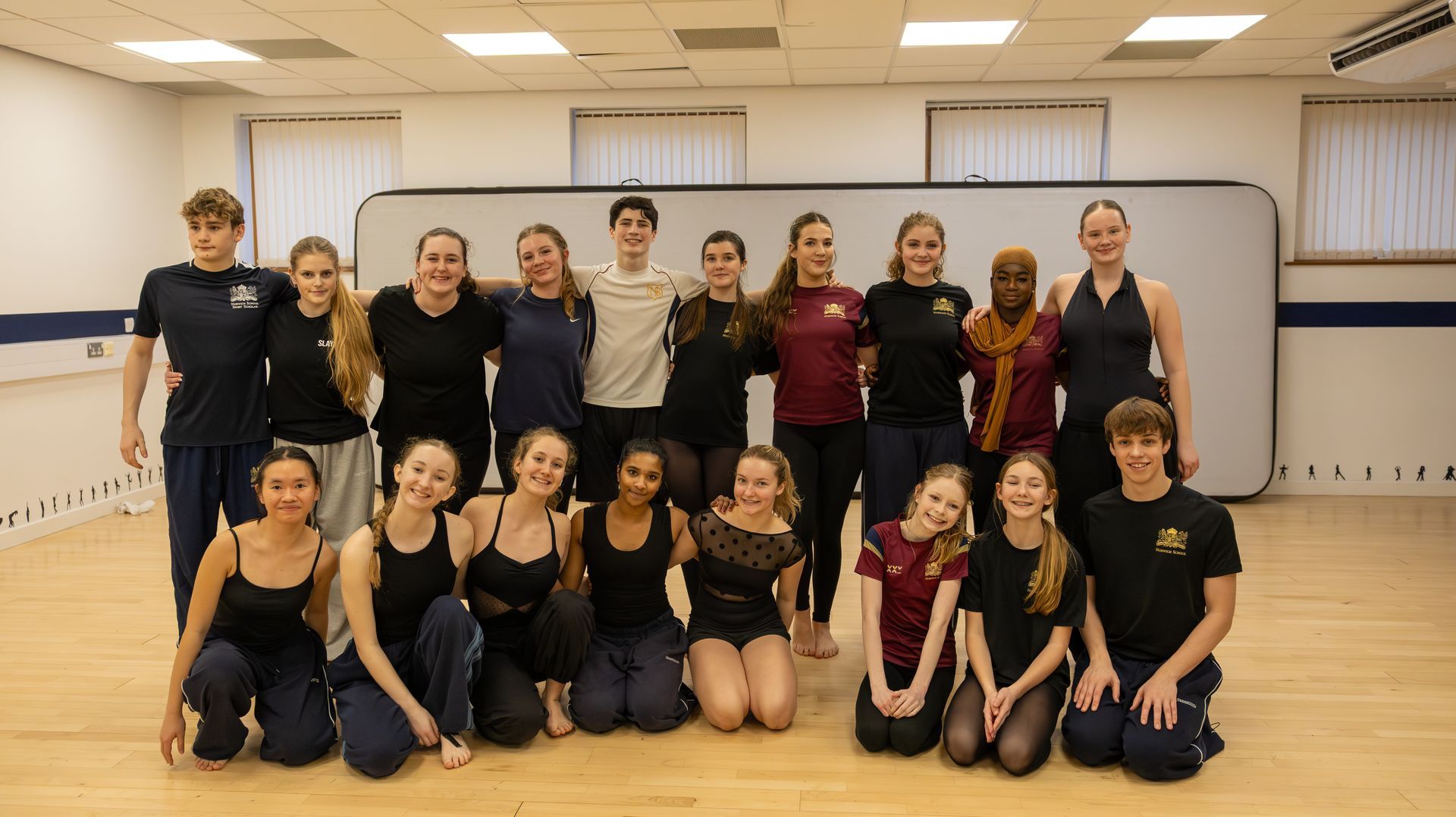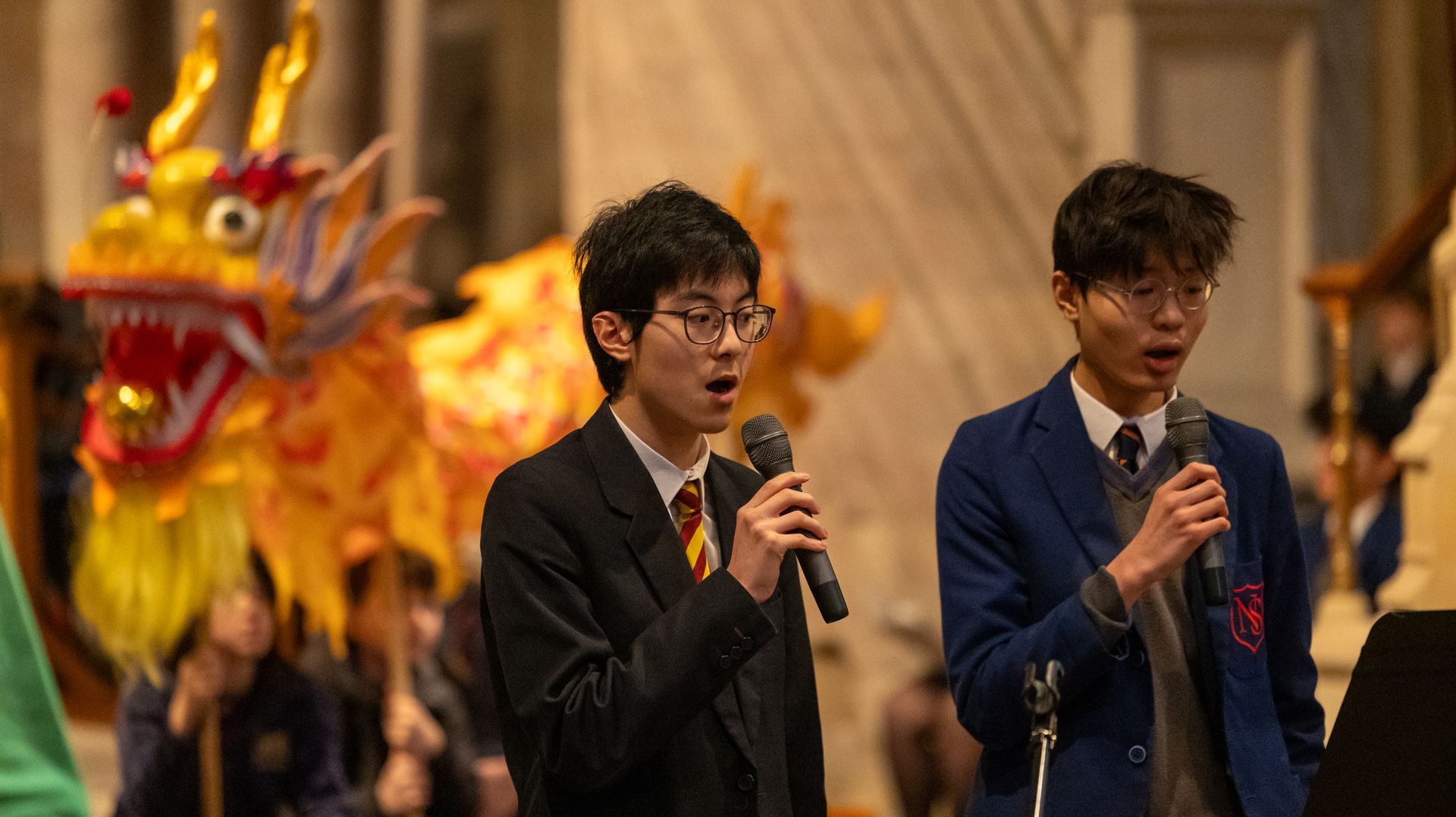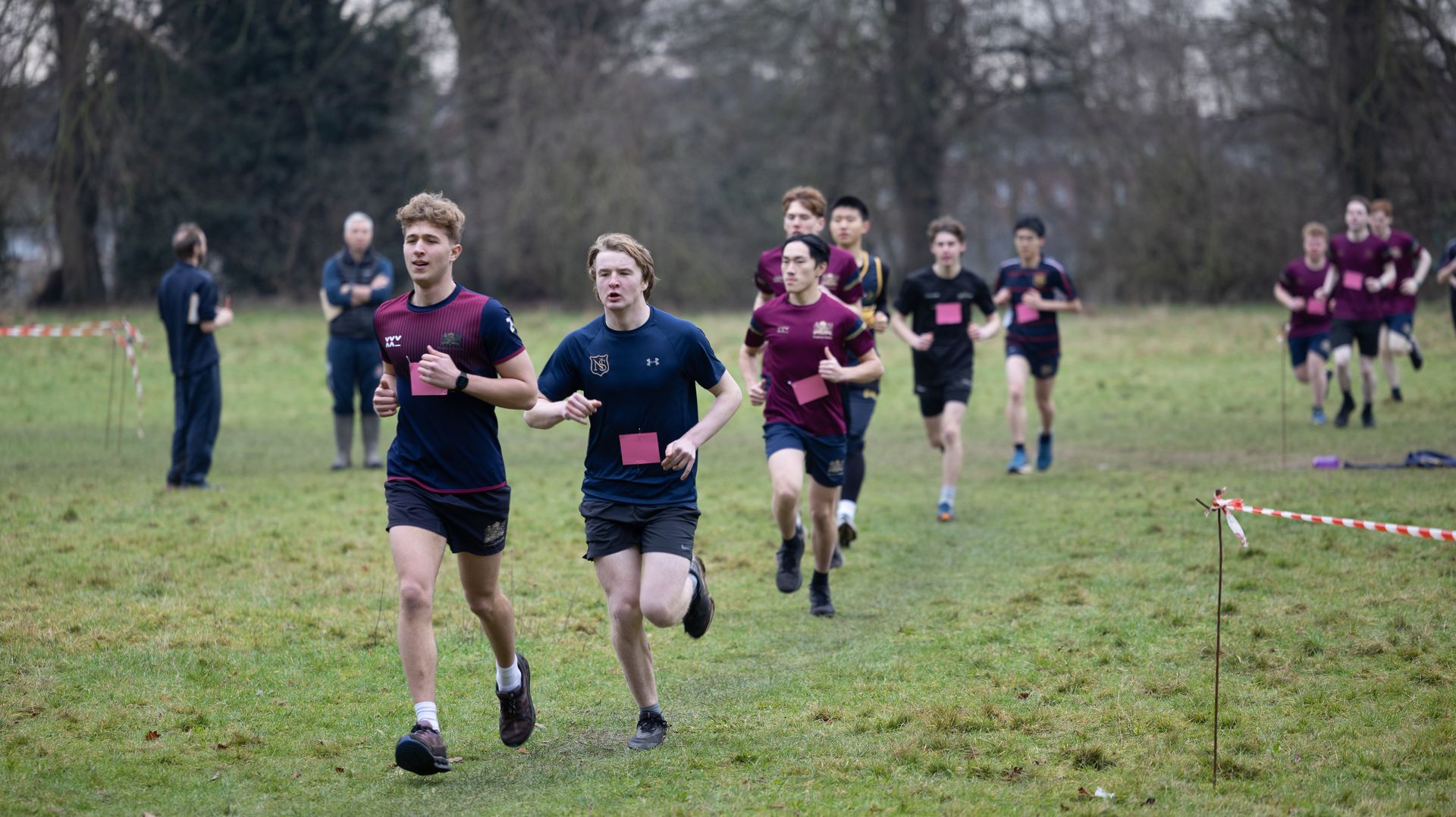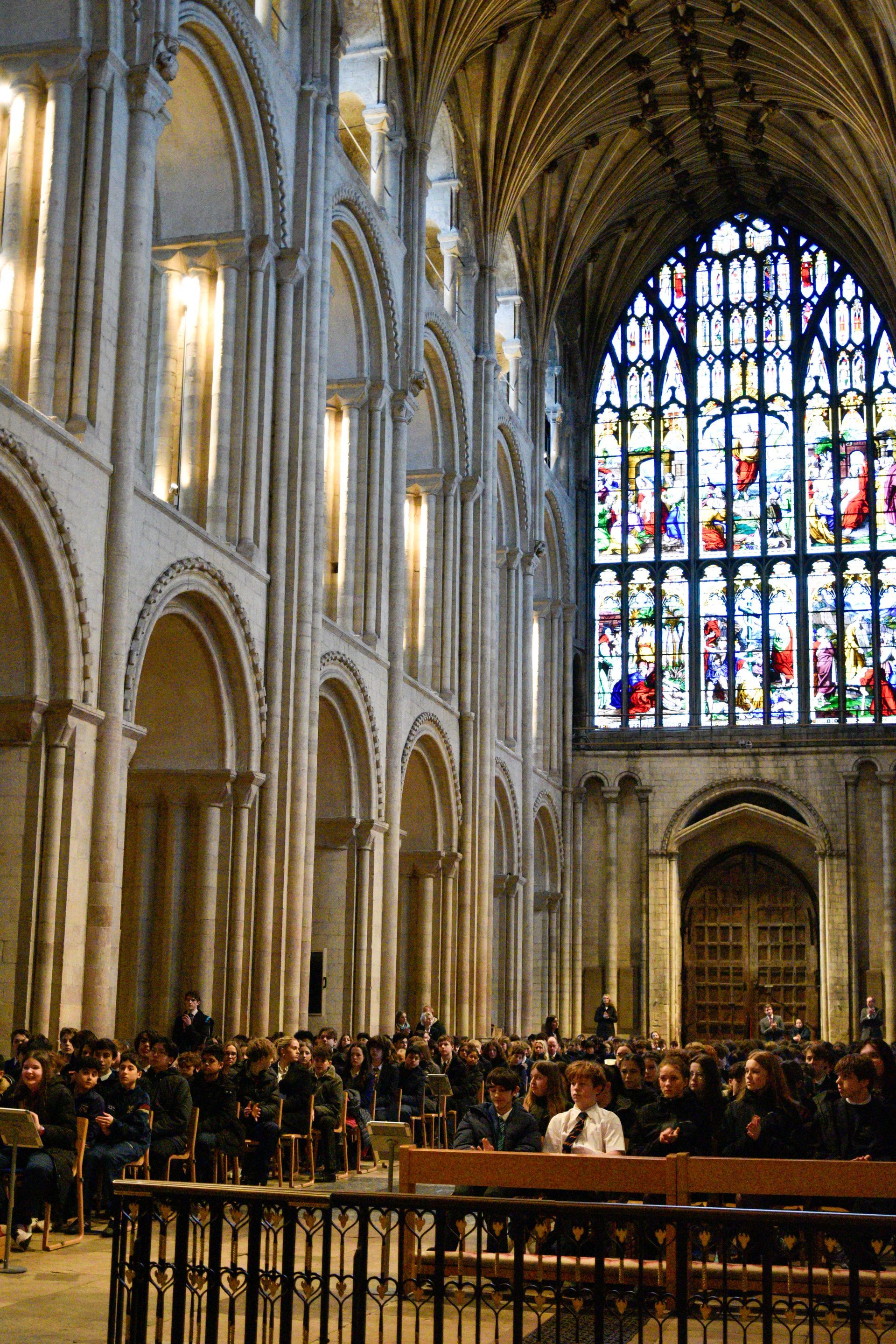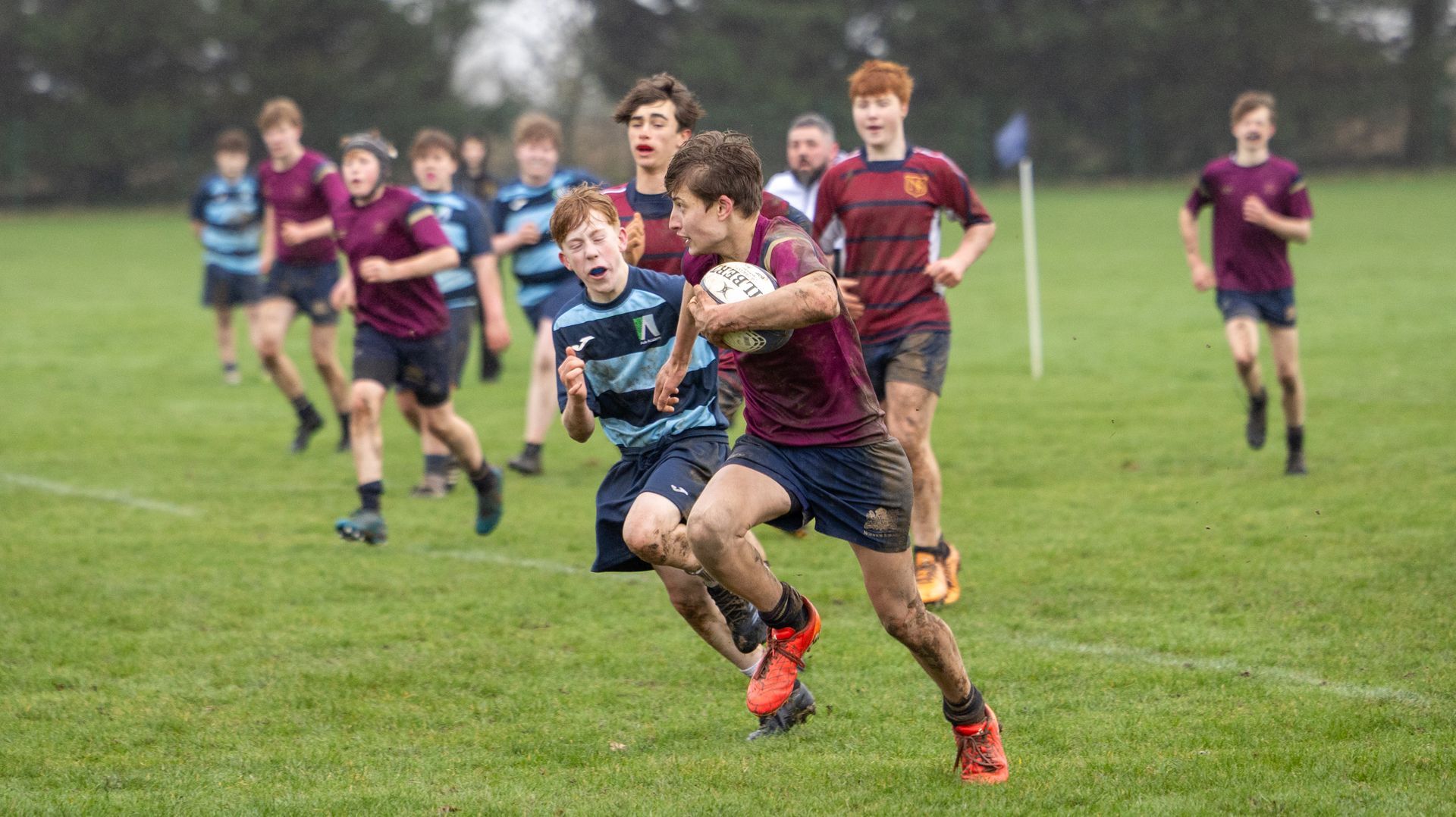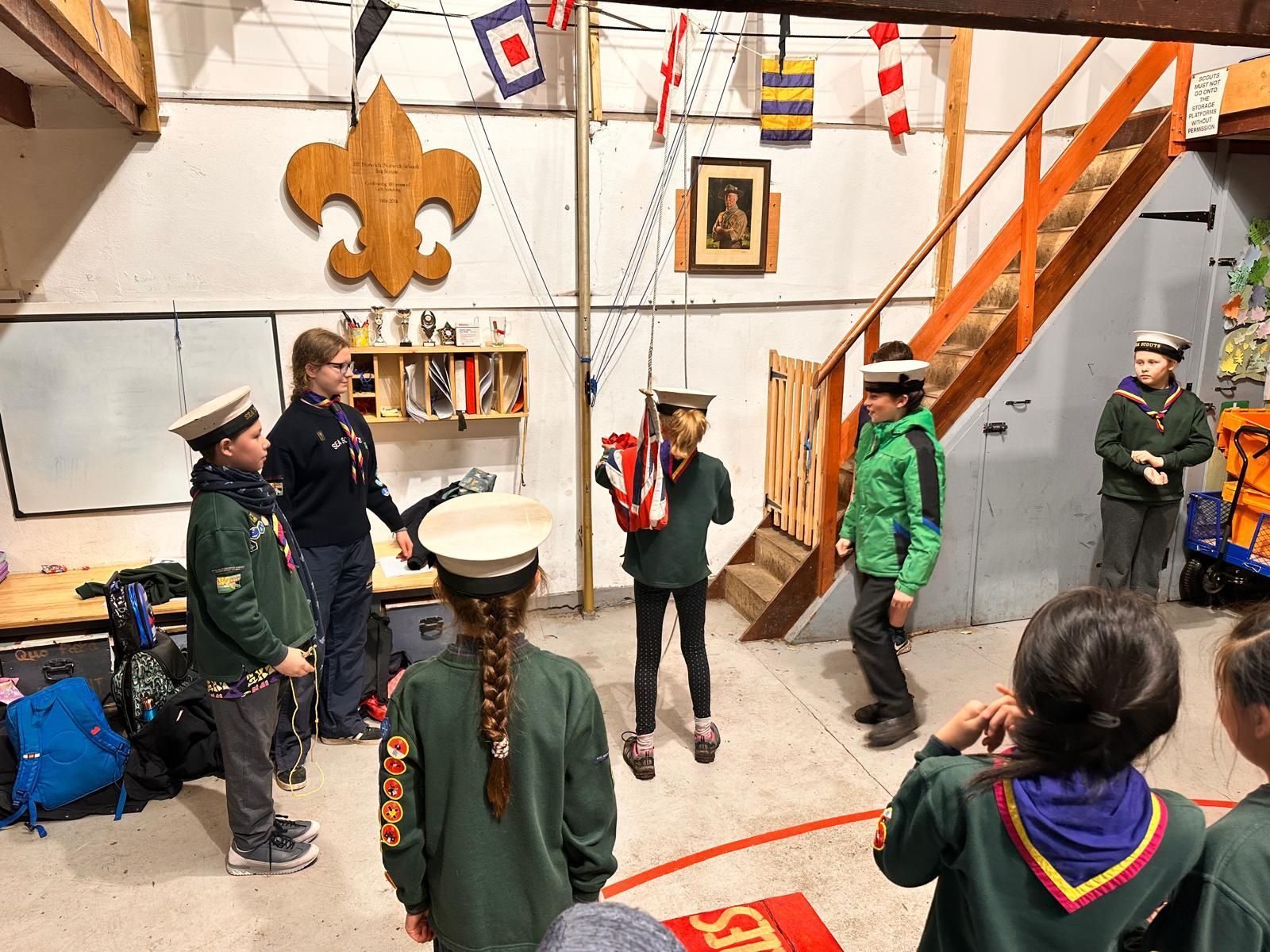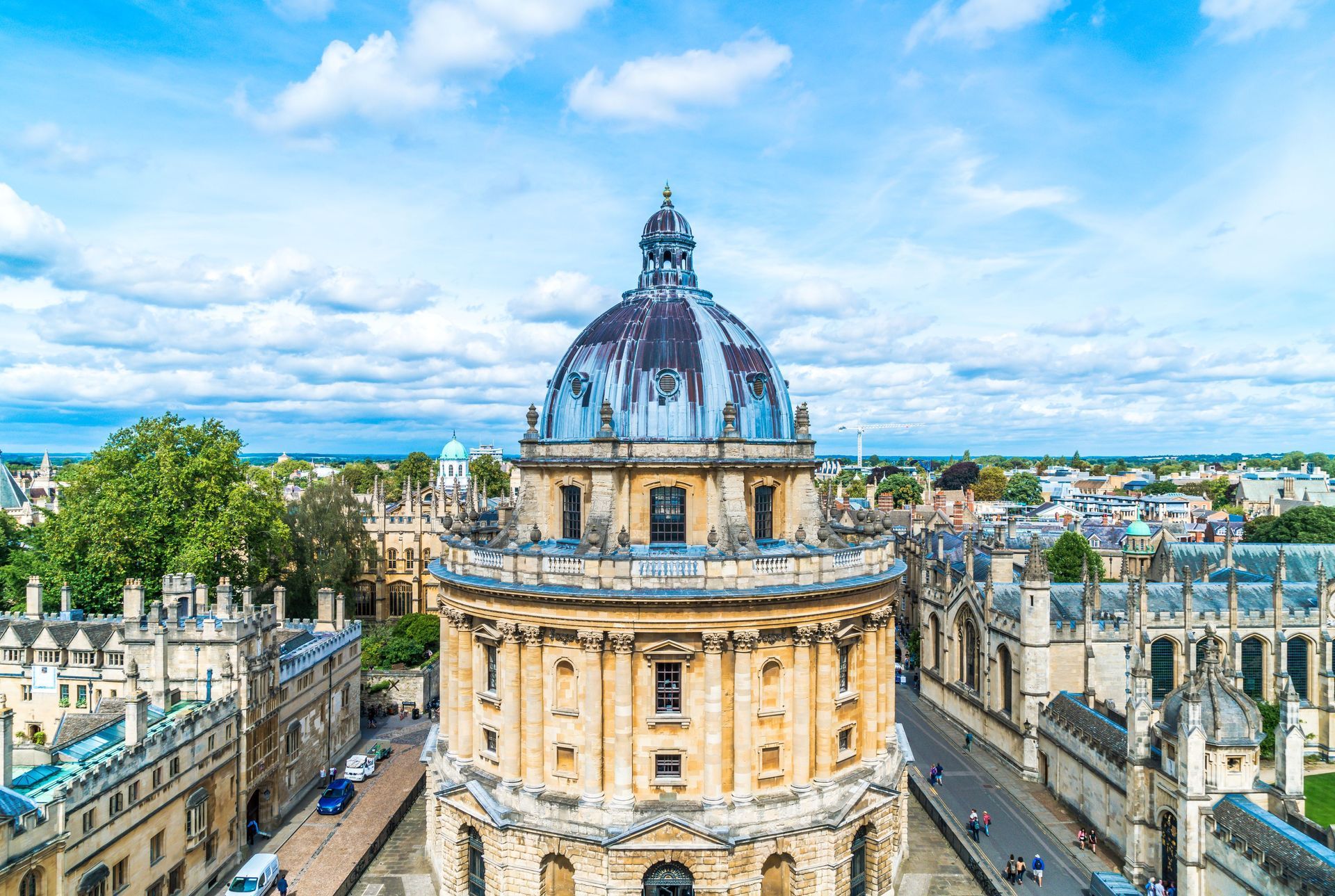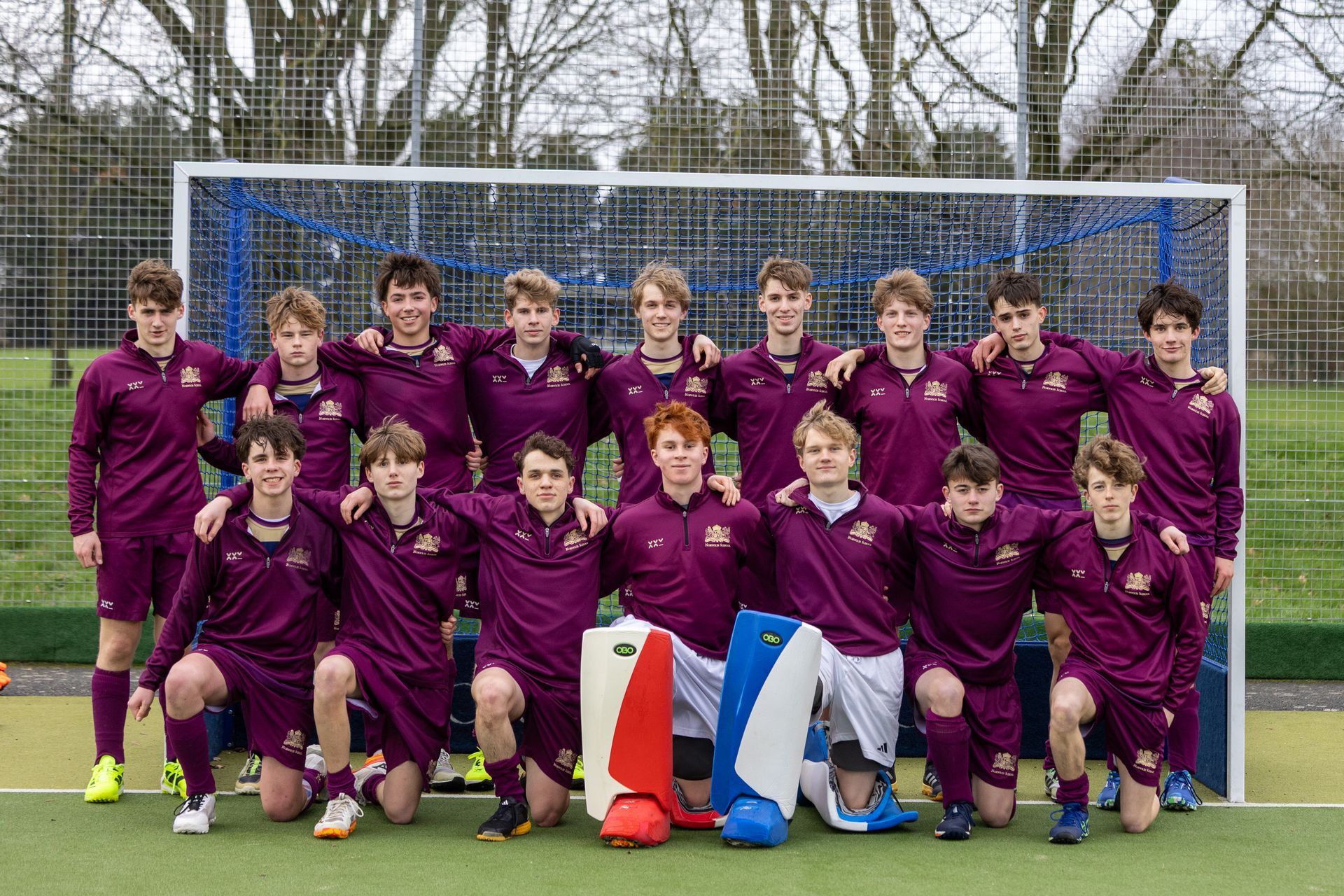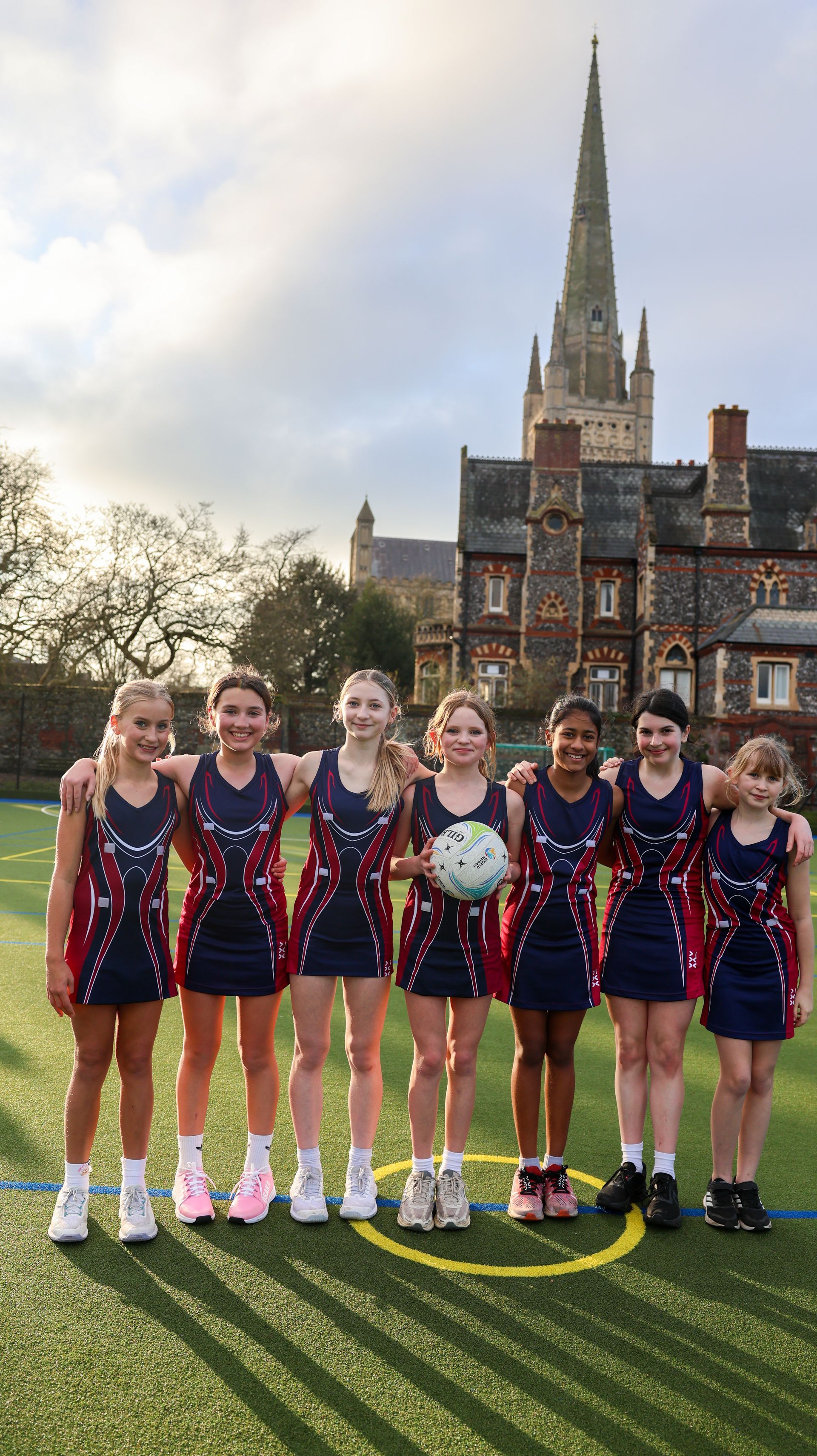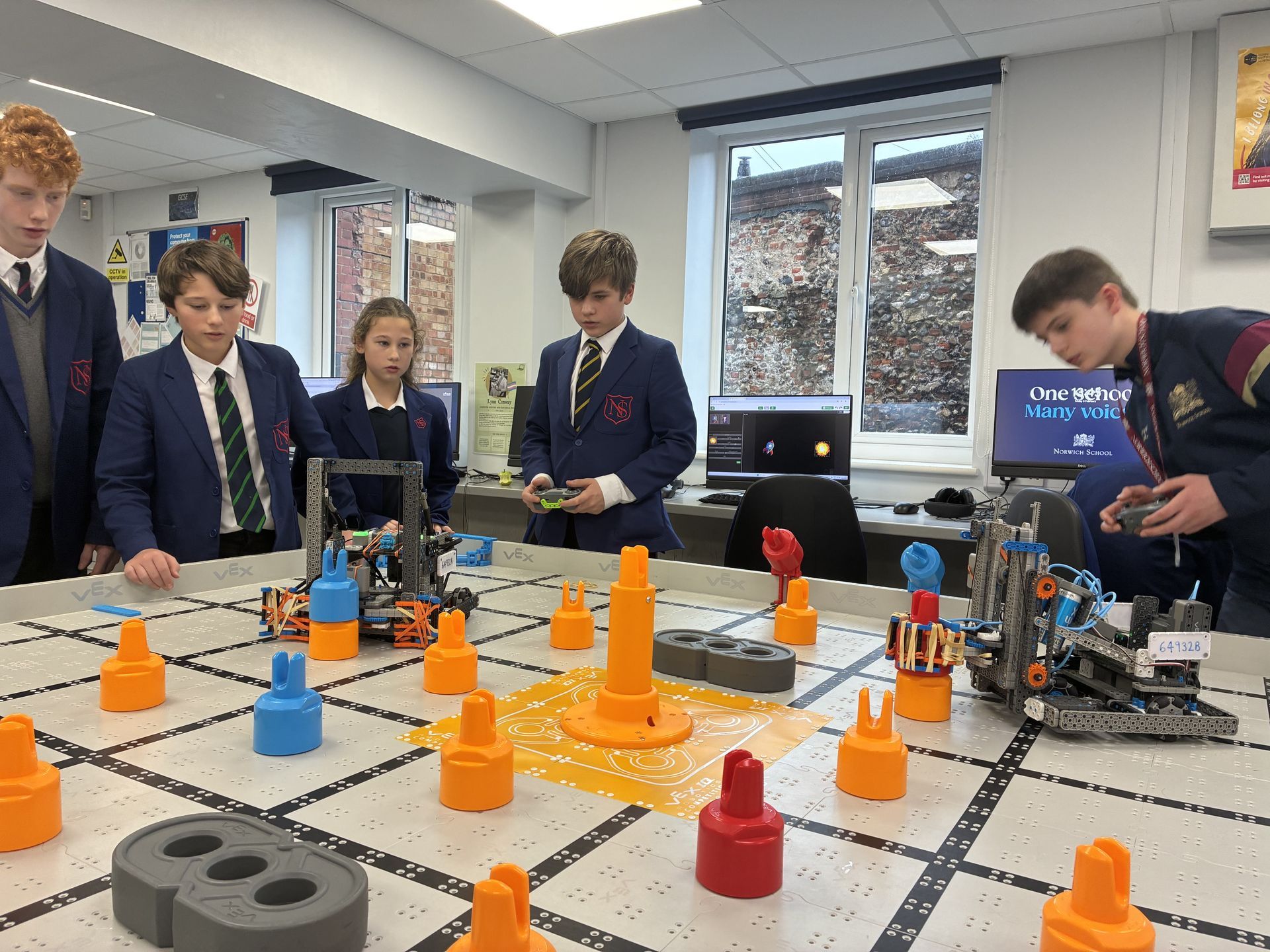Head's Address at the Beginning of the 2024/25 Academic Year
September 4, 2024
It is terrific to see the whole school back in the Cathedral after a summer apart. I trust you are looking forward to the year, both individually and as part of the wider school community.
Regarding this balance of hope for us as individuals and together, I think many of you have already walked past two prominent figures in Cathedral Close, each of whom has something helpful to say. And if you have not yet done so, I think most of you will do so before the end of the day and all of you before the end of the week. Any guesses? I am talking, of course, about the statues which stand either side of the mighty doors of the West End, located behind you as you sit in the Nave: as you look at the Cathedral from the West Front, Julian of Norwich is on the left holding a book and St Benedict is on the right with his finger to his lips. For those who are new to Norwich School (and the less observant of you from past years), cast your eyes up when you next walk past.
Mother Julian was an anchoress who chose to live in the walled-up cell of a church not far from here in Norwich during the late 1300s and early 1400s. She is credited with writing the first book in English by a female, Revelations of Divine Love, which describes visions of Christ that she experienced; it is the book she is sculpted with on the statue outside. Among her most famous statements is: “All shall be well, and all shall be well, and all manner of thing shall be well”. Whether you are a person or faith or not, one cannot help but be struck by the confidence and optimism of this statement. It is almost certainly the earliest example of manifesting in the English language. I think it is a timely phrase as we set about this new school year: there is much uncertainty in the world and much even in our own lives that we cannot control, but we can trust the process of the educational year which starts up again today after the summer and afford to be optimistic that our own ambitions can be achieved.
Indeed, this quality of hope and optimism is one of the reasons I love working in education. Young people, yes you, this amazing group in front, around and behind me, set about life with a collective cheerfulness and joy; it has been wonderful already to hear the babble of chatter as you make new friends or catch up after a summer apart. Sometimes you are not realistic or hopeful, but often you get what you want because you are confident that you can achieve your goal and simply take the steps to make it happen (I mentioned this flippantly before, but it is true that manifesting and visualising are modern terms associated with this process). Regardless of details of your individual ambition, whether in academic work, sport, music, drama, dance, debating, Warhammer or anything in between, I want each of you to be positive and joyful as you start this new year; I hope Julian’s statue will encourage you to keep going for your targets as you walk past it during the year.
The right-hand statue as you look at the West doors of the Cathedral is St Benedict, holding a finger to his lips for quiet prayer. From its foundation in 1096 until the Reformation of the 16th century, this Cathedral Church was a community of monks which was part of the Benedictine Order. If you were to attend Evensong this evening, you would hear a passage being read out from his guiding words, called the Rule of St Benedict.
At a service in the summer, Canon Aiden, one of the Canons of the Cathedral and a governor of the school, spoke of Benedict’s interest in mutual obedience, the need for the monastic community to pull together to be effective. In a modern world where rights are sometimes trumpeted more than responsibilities, Canon Aiden noted that this concept of mutual obedience is not fashionable. However, its importance resonated for me in subsequent weeks because of the civil unrest that was witnessed in many parts of the country. Sparked by the spreading of misinformation in the wake of the horrific murders in Southport, episodes of civil disobedience involving both violent conduct and expressions of ideological extremism sprung up in different parts of the country during the first part of August.
The hostile intensity of these events shocked the country because they demonstrated how quickly respect for the rule of law can be lost in certain circumstances. Mercifully, there was no major incidence of disorder in Norfolk during this period, though nobody should be under any illusions that the significant differences of opinion which underpinned the unrest exist in this part of the country, too.
The quality of our Norwich School community is one of our signature strengths, perhaps even the most important. However, this only remains true because we actively work at it, because we behave in a way each and every day that makes it the loving, compassionate, inclusive community that we cherish so much. That does not mean that we all have to agree with each other all the time; indeed, we are so much more vibrant and thoughtful because from time to time we disagree with and challenge each other. However, when that happens there must be a tone of mutual respect and we must be careful not to over-personalise any disputes that arise.
Unconditional positive regard for each other is a key phrase we use here; it comes centuries after Benedict’s discussion of mutual obedience, but I believe there is a strong overlap in thought. There is for me a sense in each idea that we may not get exactly what we want from an exchange, we may need to agree to disagree respectfully with another member of our community and we may need to compromise to achieve mutually agreeable practical outcomes. Yet, this compromise at an individual level is worth it for the community benefit. Schools are crucibles which can hold a range of opinions in a framework of mutual respect for each individual.
On too many occasions in the modern world, complex issues are broken down into overly simplistic, even binary, choices by people holding extreme views on each side of a particular debate, often by talking in echo chambers only to those of a similar opinion. I should like us to resist such a trend here at Norwich School, to look after each other both as we work together in this amazing environment and as we communicate online when we are not in Cathedral Close. This is very much the collaborative spirit embodied in today’s bible reading: “clothe yourselves with compassion, kindness, humility, gentleness and patience. Bear with each other and forgive one another if any of you has a grievance against someone. Forgive as the Lord forgave you”. We do not always need to agree, but we should continue to respect each other if and when we disagree.
The statues of Julian and St Benedict, which oversee us as we move about The Close during the year, will be good touchstones to encourage our individual ambitions and to harness them positively in the life of the wider community. Both as optimistic individuals and a cohesive, kind community, I welcome you back and offer good wishes for the year ahead.
